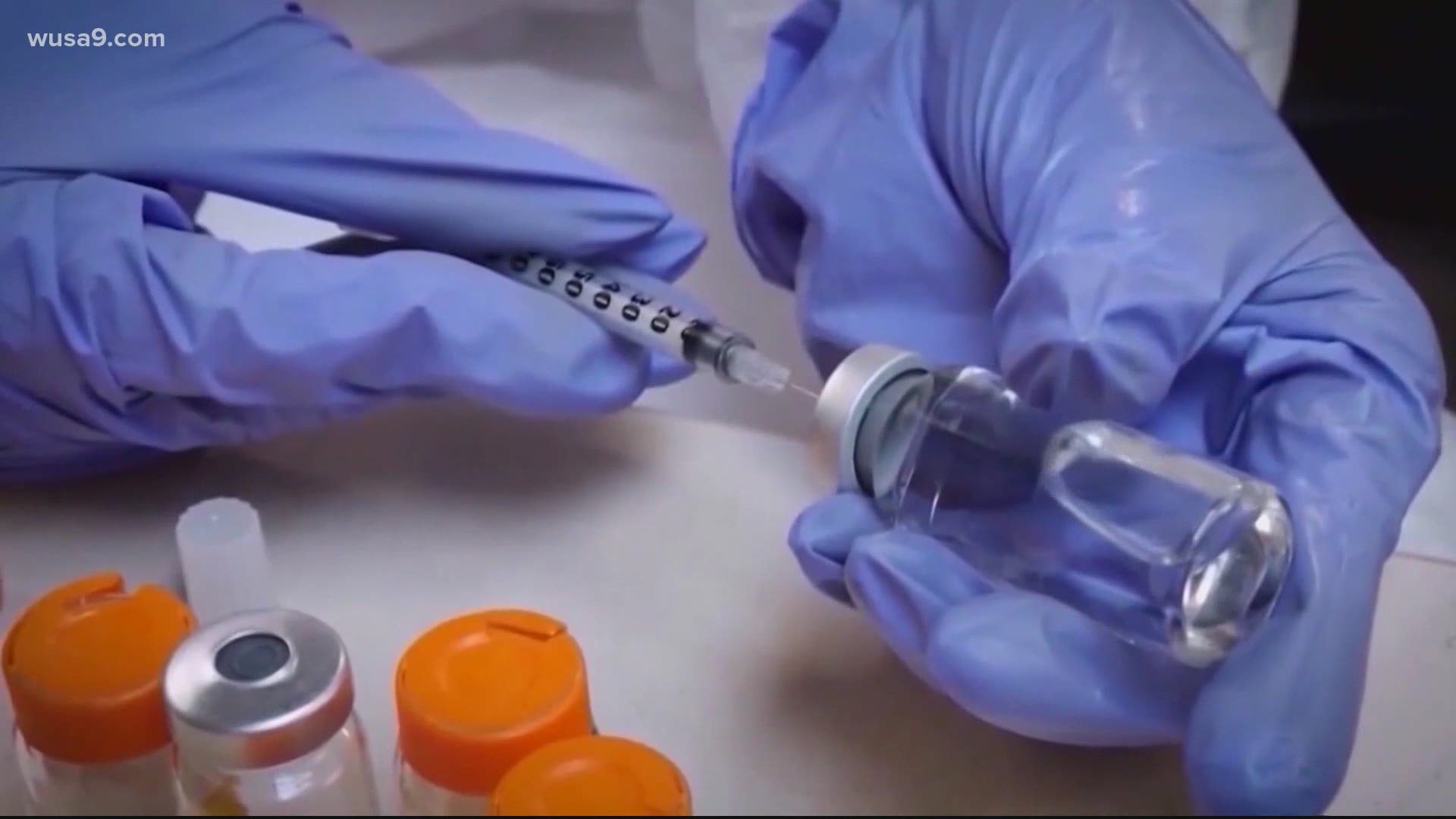WASHINGTON — Two viewers reached out to the Verify team about the FDA’s Emergency Use Authorization -- known as an EUA -- and how it differs from full FDA "approval."
During Verify'a "Ask the Experts" Facebook Live held on March 5, a viewer asked us to look into the FDA approval process.
"When will the FDA approve the vaccine and why have they not already?" Lorese Wesley commented.
Another viewer sent us this email:
"Is it correct that the COVID-19 vaccines are not yet approved by FDA and are only approved for emergency use? Why haven't the COVID-19 vaccines been fully approved by the FDA yet? What is the criteria that has to be met for vaccines to be fully approved by the FDA? How long does it take for a vaccine to be fully approved by the FDA?"
We took your questions straight to the experts.


QUESTION:
Is it true that the vaccines haven't been 'fully approved' yet, and if so, why not?
SOURCES:
- FDA spokesperson
- Pfizer spokesperson
- Moderna- press release
- Johnson & Johnson- press release
- Dr. William Schaffner- Professor of infectious diseases at Vanderbilt University Medical Center and an affiliate of the CDC's Advisory Committee on Immunization Practices
- Dr. Arnold Monto- Professor of epidemiology at University of Michigan School of Public Health and acting chair of the FDA's Vaccines and Related Biological Products Advisory Committee
PROCESS
There are two ways to get a vaccine greenlighted by the FDA: with an Emergency Use Authorization (EUA) or by applying for a license through a Biologics License Application (BLA).
“The only difference really between the emergency use and the licensure is that volunteers are observed for a longer period of time to see the duration of protection, and if there might be rare adverse events that occurred down the road," Dr. Schaffner said.
In layman's terms, Dr. Monto said, that follow-up period after complete vaccination is typically longer when considering full licensure.
"After the clinical trials are finished, the difference between the Emergency Use Authorization and full licensure, for the public's information or knowledge, is basically the duration of follow-up or safety, not efficacy," Dr. Monto said. "Efficacy requirements are the same."
For the EUA, it's an average of two months, but for a license, six months are required, Dr. Monto explained.
A spokesperson for the FDA backed that up and said they usually expect manufacturers to provide data from study participants from at least six months after vaccination when applying for a license.
So, between an EUA and a license, an EUA was the quicker option to get the vaccines out to save lives. Think of it as the fast-tracked version, rather than the standard one.
EUAs only come into play if the secretary of Health and Human Services deems them necessary, and they're generally temporary, as opposed to licensure.
Applying for a license is no joke -- there are 21 pages worth of criteria for a COVID-19 vaccine BLA on the FDA’s website. They take into account the chemistry, manufacturing and clinical trials.
A Pfizer spokesperson said they plan to submit a BLA in 2021. Same with Moderna and Johnson & Johnson according to press releases.
Just because the vaccines are under an EUA our experts say that doesn’t inherently make them less safe.
“By now, over 75 million people have been vaccinated in the United States with these vaccines, and we have had only one serious adverse type of reaction occur," Schaffner said, referencing the issue of anaphylaxis. "It occurs about two to four times for every million doses administered...so these are really not only very effective vaccines, but wonderfully safe vaccines.”
Dr. Monto was part of the FDA committee that evaluated each of the three vaccines for safety and efficacy prior to EUA approval.
"The question that comes to our committee is in balance -- are the benefits much greater than the risk? And that's what we vote on," Dr. Monto said. "We say that the benefits of vaccination far outweigh the risks, given the situation we're in now. It is an emergency use, and that's why they don't go ahead and fully license it at this point, because they know that it is unusual, but so is the pandemic. And the proof of the pudding is the fact that it's worked."
So we can verify, no, the vaccines have not been fully licensed yet. However they have been authorized for emergency use. Pfizer, Moderna and Johnson & Johnson plan to apply for a BLA in 2021.

